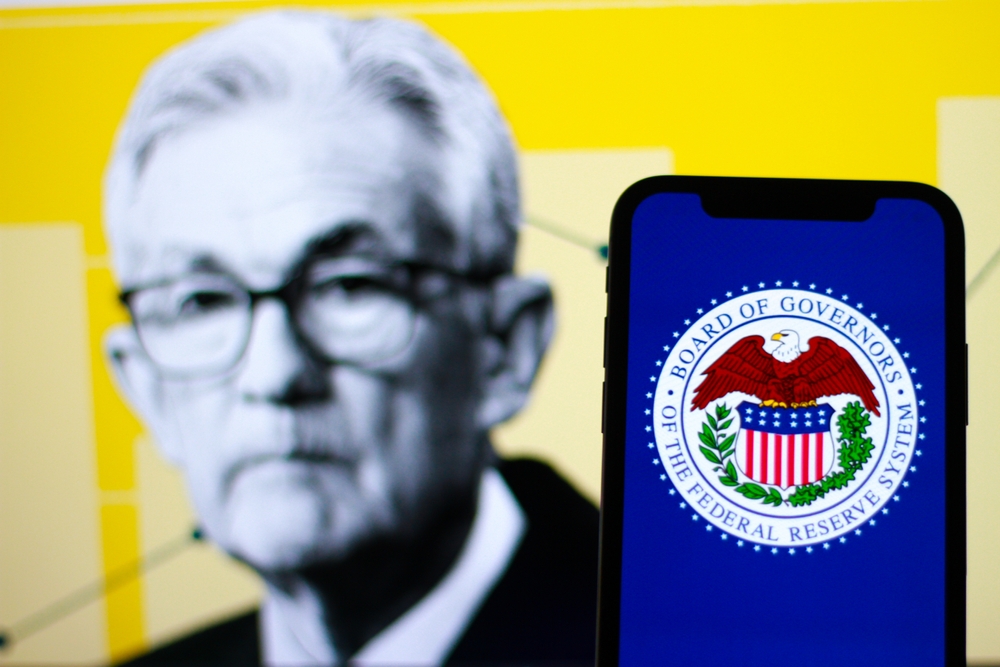
Jerome Powell's comments sparked a US dollar selloff last Friday. Editorial credit: EI Editorial, via Shutterstock.
Federal Reserve chair Jerome Powell gave his strongest indication yet that US interest rates will soon fall when he spoke at the Fed’s annual meeting in Jackson Hole. Powell described risks “shifting” and that the complex economics might now support a cut. The US dollar ended last week under intense pressure, as markets priced in a cut as large as 50 basis points (0.5%) at the September meeting, but had a strong start to this week, strengthening across the board yesterday.
This helped to partially rescue another tricky week for sterling. Despite Friday’s boost, the pound still lost about half a cent to the US dollar over the course of the week. At the same time, sterling weakened by 0.3% against the euro.
On the topic of numbers, there is heightened concern for the quality of UK economic data at the highest level. The Office for National Statistics (ONS) has come under fire for its jobs report for several years now, but that criticism has reached deafening proportions ahead of the autumn budget.
Friday’s scheduled retail sales figures even had to be postponed by two weeks to allow for further quality control. The concern is that Chancellor Rachel Reeves will soon (and possibly, was forced to previously) make major tax and spending decisions that aren’t based on solid data. That would be a huge problem and would certainly undermine whatever fragile confidence the pound still inspires.
After several weeks out of the spotlight, significant economic data from across the eurozone bloc will likely impact the euro’s performance this time out. German consumer confidence on Wednesday, along with inflation data for France, Italy, and Germany, will provide further direction.
The US dollar’s sudden weakness will sharpen focus on upcoming reports. The second estimate of quarterly GDP growth arrives on Thursday. However, the core PCE price increases data will likely trump that after Powell changed his tune on interest rates.
Make sure any upcoming transactions are protected against the risks of sudden market movements. Secure a fixed exchange rate now with a forward contract; call your account manager on 020 3918 7255 to get started.
GBP: Can we trust the data?
Another rise in headline inflation was almost cancelled out by stronger sector data and an improved business outlook, but can currency markets trust the data they’re getting from the ONS? There is real anxiety here because losing accurate, impartial data on the state of the economy would mean investors and Rachel Reeves are flying blind.
GBP/USD: the past year
EUR: A worry from Germany
Germany’s economic struggles are a cause for concern for anyone selling euros. Economic growth in the second quarter of the year was revised down at the second estimate. While the euro has had a strong summer, it will need its economic engine to cement those gains in the long term.
GBP/EUR: the past year
USD: Trump fires Fed policymaker
As has been the case for some time, the biggest influence on the US dollar is the Federal Reserve. Usually, this comes in ever-changing rate expectations. But yesterday President Trump fired Lisa Cook, a governor of the Federal Reserve, alleging she had made false statements on mortgage agreements, but widely viewed as an assault on the independence of the Fed.
EUR/USD: the past year
For more on currencies and currency risk management strategies, please get in touch with your Smart Currency Business account manager on 020 7898 0500 or your Private Client Account Manager on 020 7898 0541.

 020 7898 0500
020 7898 0500